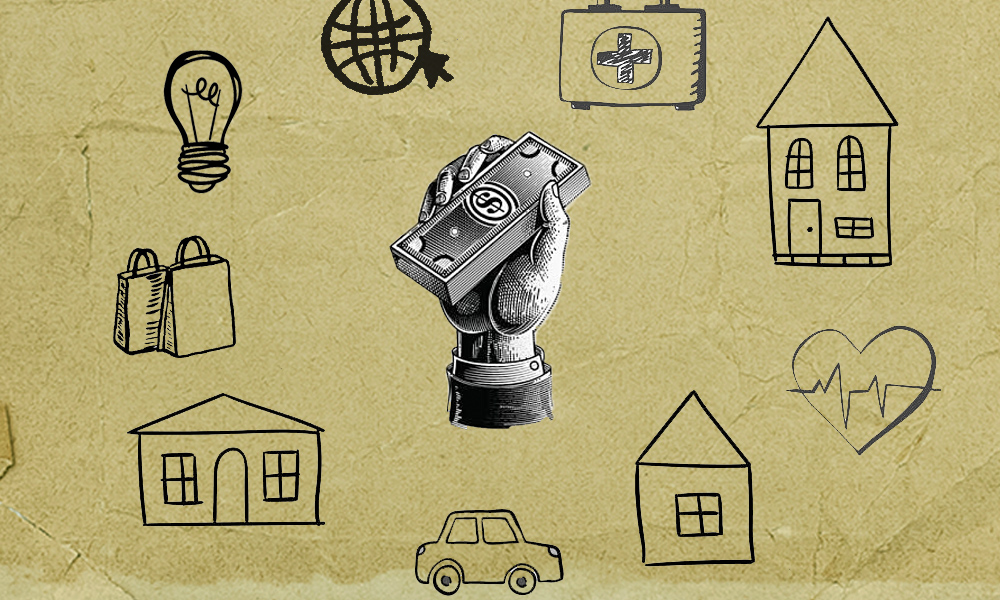- The Daily Concept
- Posts
- #59 What is universal basic income?
#59 What is universal basic income?
And is giving money away the solution to poverty & bureaucracy?

Thanks for reading the Daily Concept. If you enjoyed this newsletter, forward it to a friend. If someone forwarded you this email, click here to subscribe.
Your faithful writer,
Dr. Daniel Smith
Remember the 2020 election? It feels like an eternity ago, but it was just four years ago that we were talking about Bernie Sanders, Elizabeth Warren, and even Andrew Yang as potential Democratic presidential nominees.

I remember…
It was Yang, the former tech entrepreneur who had never held elected office, who introduced us to one of the biggest ideas of the 2020 electoral cycle: universal basic income.
Yang’s idea (which he called the Freedom Dividend) was to give every American adult $1,000 per month to help deal with unemployment caused by automation and A.I.

A Freedom Dividend explainer from the Yang 2020 campaign
What is Universal Basic Income?
Simply put, a Universal basic income (UBI) is the idea of giving people a set amount of money every month or year to help them support themselves.
It also refers to the idea of idea of replacing (or supplanting) existing social welfare systems with a cash-based benefits system.

UBI proponents say that the policy would reduce poverty while saving the government money on inefficient and overly complicated social welfare systems.
They also say that a basic income would empower people to spend their time on creative pursuits or with their families & friends instead of needing to work as much, relieving financial stress and helping to strengthen communities.

Source: World Economic Forum (link here)
Critics argue that implementing a UBI system would discourage people from working and contributing productively to society.
They also argue that a basic income paid out to every adult wouldn’t be affordable for the government paying it out.
There are a few variations of the UBI idea:
Conditional v. Non-Conditional: Some UBI proponents argue that all citizens should be given UBI without any conditions, while others want to provide UBI only to people or households below a certain income threshold.
Full v. Partial Income: Some people want a UBI that you can live on by itself, while others argue that a basic income should just be a supplement to work-based income.
The full basic income idea is based on a more radical imagining of what the world might look like if A.I. automates away tens of millions of jobs, while the partial income idea is typically seen as a way to help reduce poverty and help low-income households to reach the middle class.

Philosophy professor Fabian Wendt explained the appeal of UBI as a policy proposal for addressing poverty and reducing inequality:
“UBI has often been seen as a response to the challenge of automation — the worry that many people are going to become unemployed and replaced by machines. For example, truck drivers will lose their jobs once there are automated trucks.
UBI is probably best conceived as a floor to stand on, not as a safety net. A safety net is only meant to catch you when you need it, which requires some institution to test whether you really need it, and that opens up all these worries about paternalism, bureaucracy and so on, whereas the UBI would be a floor to stand on for everybody.”
Does UBI Work?
There have been a number of small-scale UBI studies around the world. Most of these studies have a limited number of people receive a basic income, with researchers tracking how it effects these people compared to a control group of similar people who don’t receive a UBI.

Most of these studies reach the following conclusions:
Receiving a UBI make people happier and reduces self-reported symptoms of depression (which can be caused by economic insecurity)
Children in households that receive UBI benefit from better nutrition & childcare
Moreover, many of these studies show that receiving a UBI does not make people less likely to work. These findings are significant, as they provide evidence against one of the main arguments used against UBI.
Should UBI Replace Social Welfare Programs?
One of the main arguments for UBI is that it will be a more cost-effective way to help people in poverty than existing programs like Medicaid or food stamps.
Hypothetically, people could just be given cash to pay for their food, healthcare, housing, education, and other necessities that can be fully or partially provided by social welfare programs.

There is a certain vision of UBI that sees it as a complement to a strong welfare state that provides free education and healthcare along with support for food and housing costs.
There is another more libertarian and market-oriented world where a UBI replaces these sorts of government programs, allowing for major cuts to government bureaucracy that can be replaced by the private sector.
LEARN MORE:
There is a lot more to learn about the history of the UBI idea and ongoing debates about the best way to implement it.
I recommend this thoughtful article on the history of basic income from MIT:
I also want to share a link to an interview featuring my friend Anton Jäger about his book Welfare for Markets: A Global History of Basic Income.
This interview explores some of the arguments for and against UBI in great detail and depth:
ART OF THE DAY

Lluís Masriera Rosés - Sombras reflejadas (1920)
Thank you for reading. Please reply to this email if you have any thoughts or feedback.
Yours,
Dan

